6 January 1929: First All Assam Depressed Classes Conference
The conference was presided by Senapati Sonadhar Das. The conference raised the demand for separate electorate for the Depressed Classes[1]. Due to conspicuous presence of tribal population there was no severe form of untouchablity in Assam. Therefore, the dalit movement was not so strong. The movement in that state was more under the influence of Congress party than that of the Scheduled Castes Federation.[2]
6 January 1939: Dr. Ambedkar addressed a big meeting of agriculturists at Mahad (Raigad district of Maharashtra) where he impressed upon the audience that the Congress Ministry had failed to mitigate their woes[3].
He said that the Premier Kher (Pirme Minister of Bombay) was simply a figure head; and he described the other Ministers of the Provincial Government as dogs at the door of Sardar Patel. Referring to the boastful statement of Sardar Patel, which he had made at a reception given to Kher in Gujarat, to the effect that they welcomed Kher as a devotee of Gandhi and not as Premier Kher, otherwise thet would have sent him back unceremoniously, Dr. Ambedkar said that he would wreak vengeance on Patel for this dire insult inflicted upon a Maharashtrian. If Patel dared insult him in this manner, he added, he would thrash him. This was no a soliloquy; this was a public speech! It was a natural outburst of anger sprung from a strong mind which was consitenet with its contempt for the Congress leaders’ rude mentality, and determinied to show its superiority.
The above outburst is also a sequale to the immediate past incidents. In September 1938, the Industrial Disputes Bill was taken up by the Bombay Legislative Assembly. Dr. Ambedkar and Jamnadas Mehta opposed the Bill tooth and nail. Ambedkar described Bill as bad, bloody and bloodthirsty inasmuch as it made a strike under certain circumstances illegal and affected the right of the labourer to strike. Ambedkar stated that according to him strike was a civil wrong and not a crime, and making a man serve against his will was nothing less than making him a slave. He continued that the Bill ought to have been called ‘the Worker’ “Civil Liberties Suspension Act”. Ambedkar then teased the Government by saying that it was a Government, which claimed to be elected on labour votes; but it did not stand by its election pledges. It was a democracy, he added, that was enslaving the working class, and therefore it was a mockery of democracy. But the Congress Ministry was determined to pass the Bill, which they ultimately did despite massive rally at Kamgar Maidan (on 6 & 7 November) and strike (on 7 November) were organized by Independent Labour Party. Also on 25 December, Swami Sahajanand, the Peasant leader from Uttar Pradesh, saw Dr. Ambedkar at his residence in Bombay and had a talk with him about the labour problem in Bombay and the agrarian reforms in general. He tried to persuade Ambedkar to join the Congress to form a united front against imperialism.
6 January 1940: Periyar met Dr. Ambedkar in Mumbai[4]
By 10.00 a.m, Periyar arrived at Dadar station with his colleagues (Justice T. A. V. Nathan, P. Balasubramaniam – Editor of Sunday observer, the mouth piece of Justice Party, C. A. Annadurai, the General Secretary of Justice Party, T. P. S. Ponnappan and C. Panjatcharam). He was given a reception and taken by a decorated coach fitted with two white horses! Evening, he met Dr. Ambedkar and latter took the former to his residence. Both discussed on various social and political issues from 9.00 to 10.30 p.m.
6 January 1949: Dr. Ambedkar wrote to Pune Collector to purchase land to set up a University in Talegaon.[5]
The Pune Mirror newspaper dated 4 August 2011reported:
Dr Babasaheb Ambedkar’s dream of setting up a university in Talegaon remains unfulfilled to this day. Inspired by the universities of Nalanda and Takshila, Dr, Ambedkar had bought 87 acres of land and a bungalow at Talegaon and Wadgaon in Pune district of Maharashtra. Today, all that remains of the dream is one plot of land and the Vishwaratna Dr Babasaheb Ambedkar Smarak Samiti is struggling to find enough land to build a memorial.
Professor Prakash Pawar, vice principal of Fergusson College and head of the political science department told Pune Mirror, “Dr Ambedkar wanted to set up a university in Talegaon like Nalanda and Takshashila. In 1948, he was trying to purchase land for this purpose. A letter that Ambedkar wrote to the Pune Collector on January 6, 1949 when Ambedkar was law minister in the Centre has been unearthed. In the letter Ambedkar expressed his desire to purchase the Dabhade fort in Induri Talegaon. However, Ambedkar got busy with other matters and did not find time to pursue the matter.”
Ranjana Bhosale former president of the Talegaon Municipal Council and president of the Samiti said, “The acquisition process for seven gunthas of land on which the bungalow stands, is on. There are other vacant plots beside the bungalow. If the owners of these plots can shift to the nearby open space, the plots can be used for the memorial we plan to build.”
These seven gunthas of land are in the Shaha-Altino Colony and Dr Ambedkar’s bungalow is on plot no 35. The Samiti wants to reserve plots 28 through 34, plot no 36 and plot no 45 for the memorial. Together, these plots measure 52 gunthas.
Kisan Thul, secretary of the Samiti said, “Dr Ambedkar bought 65 acres land on 26 November 1948. After his death, the land was transferred to Yashwantrao, Dr Ambedkar’s son, and his wife Savitabai on 29 January 1959. Later, it was transferred to the Administrator General of Mumbai on 24 November 1959. After this, the land was purchased by the Reverend Brother Leonard Superior General and his successor Brother Francis on 1 October 1960. After this, it was purchased by one L N De Souza. Then, the land was divided into plots and sold. Plot No 35 was bought by Joseph Vincent De Souza and others on 1 April 1967.”
Historian Prabhakar Ovhal, whose book on Dr. Ambedkar and Talegaon will be releasing on August 15, said, “Ambedkar held meetings with Sant Gadge Baba and Acharya P K Atre in Talegaon. Ambedkar first purchased 65 acres of land at Harneshwar Tekdi at a price of Rs 16,000 and later, he purchased 22 acres at Wadgaon.”
6 January 2010: Public interest litigation from the All India Christian Federation (AICF) was filed with the Supreme Court of India seeking reservations for all Dalits irrespective of their religious faith[6].
The PIL (WP Civil # 579/2009) sought reservation for converted Dalits of all faiths on the same footing as extended to Scheduled Castes following Hinduism, Buddhism and Sikhism.
A Bench comprising Chief Justice K. G. Balakrishnan and Justice B. S. Chauhan issued a notice to the Ministry of Social Justice and Ministry of Minority Affairs for its response on the implementation of the recommendation of the National Commission for Religious and Linguistic Minorities (NCRLM) headed by former Chief Justice of India Rangnath Misra.
Senior advocate K. K. Venugopal and D. Vidyanandam submitted the recent statement by Minority Affairs Minister Salman Khurshid that the report of NCRLM was not made public and there was a difference between the manifesto of Congress party and the recommendation by the Commission was an attempt to defeat the claims of converts.
Mr. Venugopal said the Centre had referred the NCRLM report to the National Commission for Scheduled Castes which also supported the reported recommendation for 15 per cent (10 per cent for Muslims and 5 per cent for others) reservation without disturbing 50 per cent ceiling set by the Supreme Court.
The PIL said paragraph three of the Presidential order of 1950 under Article 341 of the Constitution, which empowers the President to specify Scheduled Castes, was coming in the way of extending the benefits of reservation to Dalit converts and was upheld by the NCRLM’s seven-member committee. It sought striking down of paragraph 3 of the Constitution (Scheduled Castes) Order 1950 on the grounds that it is ultra vires of the Constitution. The NCRLM has prepared its report after visiting various states and among the terms of reference was to examine whether the Scheduled Caste converts suffer from social disabilities like untouchability even after embracing Christianity. The Ranganath Mishra Commission earlier declared that non-inclusion of Dalit Christians and Muslims in the SC ambit was a discrimination based on religion and goes against the Constitution of India.
After a brief hearing, the Bench tagged the petition with other PILs on the issue which has been pending since 2004.
The Centre had in January 2008 told the apex court that it would study the report of Misra commission which examined the issue of granting Scheduled Caste status to Dalit Christians for extending benefits of reservation to them.
The NGO had also submitted that it was the right time that the court should strike down the order requiring all Dalits to belong to a particular religion if they were to avail the SC reservation benefits as it goes beyond the mandate of Article 341(1) and violates the fundamental rights guaranteed under the Constitution.
All India United Christians Movement for Equal Rights, had said the Congress Government had in 1996 brought a Bill in Lok Sabha to amend para three of the “Constitution (Scheduled Castes) Order 1950” for extending reservation benefits to Dalit Christians. There are about 20 million dalit Christians.
The PIL had claimed social standings of Dalits even after converting to Christianity has not changed and they have to face discrimination in churches also.
The demand for granting Scheduled Castes status to the Dalit Christians has been opposed in several quarters, including the SC/ST Commission which contended that they cannot enjoy two rights – that is of minority and SCs.
Citing a 2005 ruling of the apex court, in which it was said even if a tribal converted to Christianity, he or she could still avail reservation benefits as his/her status as ST remained unchanged, PIL had said the same law should be applicable to Dalits after their conversion.
—–
[1] Bhakta Das, A Glimpse of Scheduled Castes in Assam, book p 26. 1986
[2] Kshirsagar R K, Dalit Movement in India and Its Leaders, 1857-1956, book page 384-385. 1994
[3] Dhananjay Keer, Dr. Ambedkar: Life and Mission book, Pg 318
[4] K V Ramakrishna Rao, The Historic Meeting of Ambedkar, Jinnah and Periyar, A paper presented during the 21st session of South Indian History Congress held at Madurai Kamaraj University from 18 to 20 January 2001 and published in the proceedings, pp.128-136
[5] Nitin Brahme, Pune Mirror, Newspaper dated 4 August 2011
[6] The Hindu, Newspaper






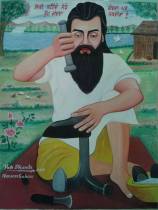

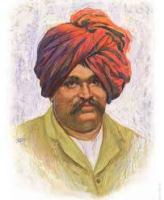
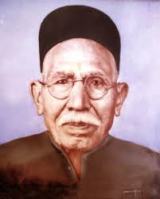
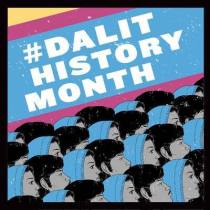
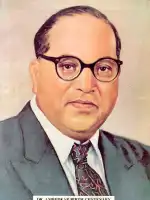
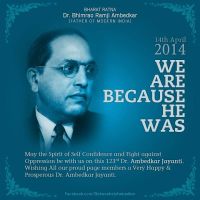

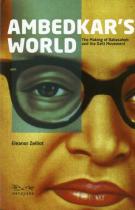
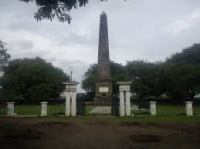
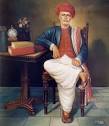

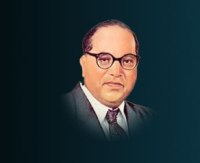
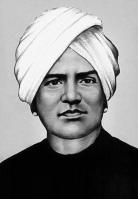
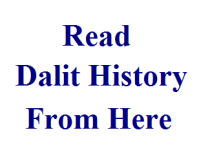
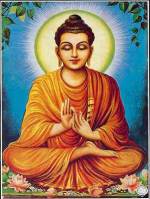
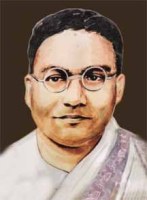
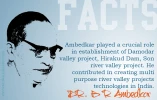
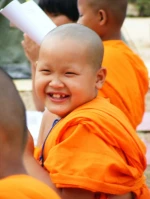
This is historical matter.great memories
LikeLike
Indeed! Thanks for sharing your views!
LikeLike
Reblogged this on కార్తీక్ నవయాన్.
LikeLike